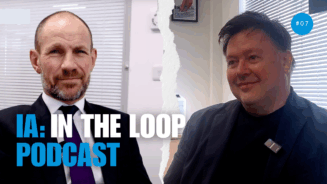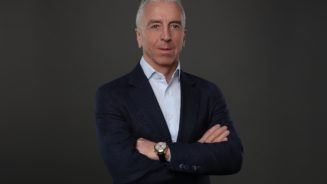The global nature of the end-clients seems to be a key focus for Lombard. How has that affected the solutions you offer?
We are increasingly dealing with families who are internationally mobile and need a cross-jurisdiction planning solution, for example, a Swedish entrepreneurial family that has a child resident in the UK, one studying in the US, business interests in Germany, with plans to retire in France.
Advisers are reaching out to companies such as Lombard because of the increasing complexity they have to deal with.
The world has become more complex for all our end-clients. The cross-border portability issue was a lot less important 10 to 15 years ago. This complexity has increased on the back of new regulations, changing tax laws, international directives and so on.
At Lombard, we say complexity is our friend. The more complex the world has become for high net-worth investors and their advisers, the more there is a need to plan, which is our core business. This has been one of the fundamental reasons Lombard has grown over the years.
We applaud regulation to the extent that the intentions are good and aimed at making businesses more solid, more transparent and more aligned with the interests of the end-client. But sometimes the implementation and the technical details are implemented by people who don’t have a deep understanding of the business and it isn’t always as straightforward as it should be, which creates even more complexity.
US clients in particular have had difficulties because of Fatca. With a US head office, how is Lombard targeting the US expat market?
For many European financial advisers, the moment you bring a US enquiry to the table you get, ‘I’m sorry but we are no longer able to deal with anything regarding the US’. Some of the more sophisticated advisers have been looking for the right solutions but are struggling to identify them.
Earlier this year, we launched a solution suite called the Wealth Passport in the UK and Germany. Our prime focus is US people based in the UK or in Germany, so we are reaching out to advisers who have US clients in their portfolios.
We focus on those two jurisdictions because the US populations resident in the UK and Germany are the most significant in Europe. We have been asked by our partners and some clients to expand the Wealth Passport to other countries, which we may consider in the future.
This is a clear example where we can quickly put people and development teams together and create interesting opportunities on the back of our more global enterprise.
What other trends are you seeing in the industry?
In addition to increased complexity, we are also seeing high net-worth investors with a different mindset. Ten or 15 years ago we were dealing with 50- and 60-year-olds who had a different understanding of how to interact with a company like Lombard.
Today, we increasingly have clients who are internationally mobile and fully digitalised. They want real-time accessibility, which is creating a different service expectation. That is why we are investing in service efficiency and digital service platforms.
Lombard expanded into Asia this year. Do you have a specific focus in the region?
We have set up operations in Hong Kong and are in the process of finalising the Singapore operation, which will be up and running in the short term. In Asia, for the time being, we are focused exclusively on Asian high net-worth investors and families.
Expat planning is on our radar but, as a mid-sized organisation, we have clear priorities about what we need to do first.
The company also acquired Eurolife from Zurich in January. How has the integration gone?
The Zurich book, which was close to €3bn, was a very interesting exercise for us and we were able to integrate it in three or four months without any impact on customers.
Zurich realised that maintaining a profitable book of €3bn would be impossible. Scalability is big in our business. We have seen companies such as Zurich realise that for them to become scalable requires significant investment. The best option was to sell the business to a company like Lombard, which can make the commitment of service continuity to their customers.
It was an opportunity for Zurich to divest a non-core business and refocus on its core activities. It was a win-win situation.
Does Lombard have any more acquisition plans in the pipeline?
We continue to work on organic growth as much as possible. The business is very dynamic and there may be opportunities Lombard may want to look into if it believes it could add value to the company.




